Everything You Need to Know About Avascular Necrosis
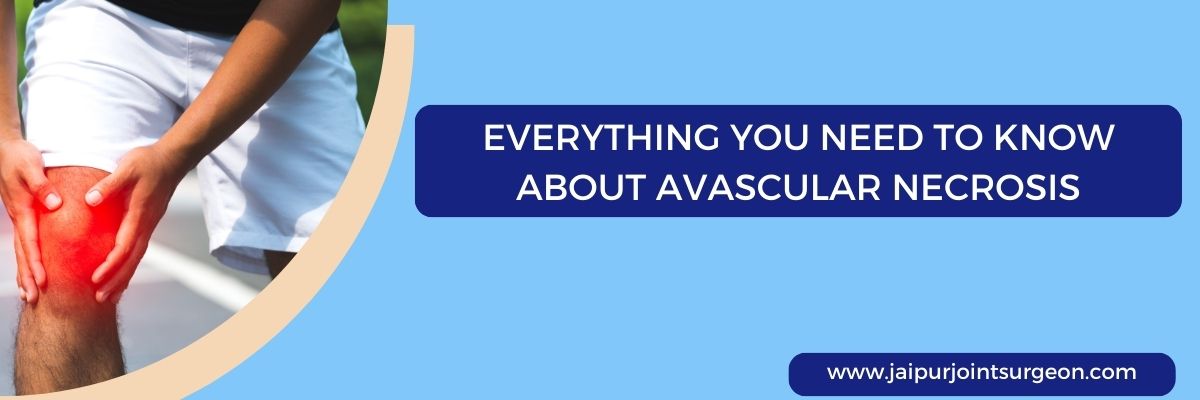
Avascular necrosis (AVN) is a painful condition that occurs due to the loss of blood supply to the bone, causing the bone tissue to die. It mainly affects the hip joint but can also affect the knees, shoulders, and ankles. If not treated, it may result in bone collapse.
If you are experiencing persistent pain in your bone, especially when you put pressure on it, then get it checked by Dr. Dilip Mehta. He is one of the best orthopedic surgeon in Jaipur who excels in treating the musculoskeletal system. He specializes in joint replacement and reconstruction surgeries, such as hip replacement, knee replacement, etc.
What are the causes of avascular necrosis?
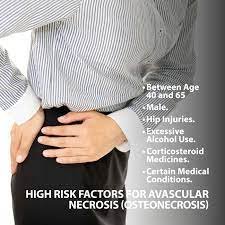
Image Sources: https://www.floridaortho.com/specialties/hip-thigh/avascular-necrosis-osteonecrosis/
Avascular necrosis mainly affects people in the age group of 20 to 50 years. This condition usually develops due to an injury or underlying health condition, such as:
- Fracture
- Dislocation
- Long-term use of steroid drugs
- Medical treatments like radiation therapy for cancer, organ transplant, etc.
- Excessive alcohol consumption
- Inflammation, blood clots, or damage to the arteries can block the blood supply to your bones
- Certain chronic diseases including diabetes, HIV, osteoporosis, lupus, and sickle cell anemia
What are the symptoms of avascular necrosis?
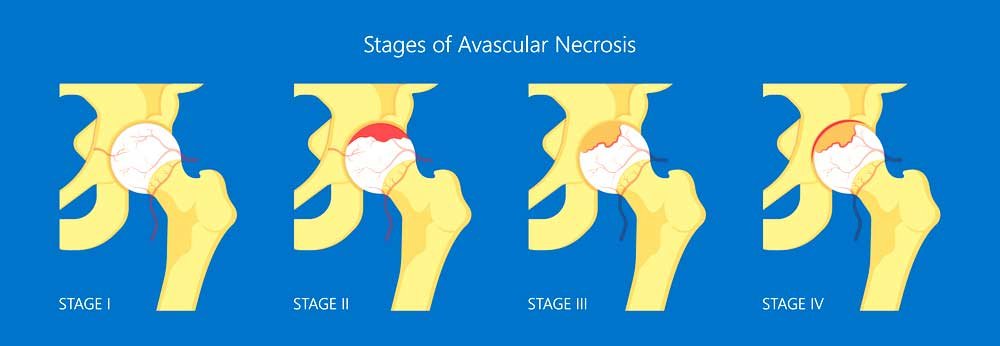
Image Source: https://manhattansportsdoc.com/hip-avascular-necrosis-avn-manhattan-new-york-city-ny/
In the starting stage, there are no symptoms of avascular necrosis. It may take weeks or months before you notice any symptoms. Some of the common signs that indicate avascular necrosis are:
- Minimal pain in the joint, especially when you put pressure on the bone
- Increasing joint pain and stiffness
- Limping if the knee or hip joint is affected
- Limited range of motion
- Difficulty in walking, standing, or climbing stairs
If the joint collapses, you will be in excruciating pain, due to which you will not be able to use your joint.
As most of the symptoms are similar to other bone issues, you must get a proper diagnosis. Dr. Dilip Mehta, a highly qualified orthopedic doctor in Jaipur, recommends people with bone pain to consult a doctor at the earliest to prevent complications and get timely treatment.
How is avascular necrosis diagnosed?
When you go for diagnosis, the doctor will conduct a physical exam, checking for tender spots by pressing your joints. He will also move your joints in different positions to see the range of motion. Further, he may ask you to undergo a few tests to find the root cause of your pain:
- X-rays
- CT scan and MRI
- Bone scan
What are the treatment options for avascular necrosis?
The doctor will focus on easing the pain, improving the joint, and stopping further bone damage. Your treatment will depend on various factors, such as:
- Cause of avascular necrosis
- Stage of the condition
- Location of the affected bone
- Degree of bone damage
- Your age
If the condition is detected early, your treatment will include taking medications and minimizing the use of the affected area.
You may have to use crutches if your hip, ankle, or knee is affected to avoid putting weight on the damaged joint. Your doctor may ask you to exercise to keep your joints mobile.
Medications
If there is an underlying cause for your avascular necrosis, your doctor may prescribe medications to manage and treat it. They include:
NSAIDs:
They help ease the pain
Blood thinners:
If the cause of avascular necrosis is blood clots, then blood thinners are prescribed.
Cholesterol drugs:
These medicines help reduce the cholesterol level and fat in your blood, thereby preventing blockages that can result in avascular necrosis.
Surgery
Dr. Dilip Mehta, a leading orthopedic surgeon in Jaipur, explains that though nonsurgical treatments help slow down avascular necrosis, most patients need surgery over time.
Different types of surgical options are:
Osteotomy:
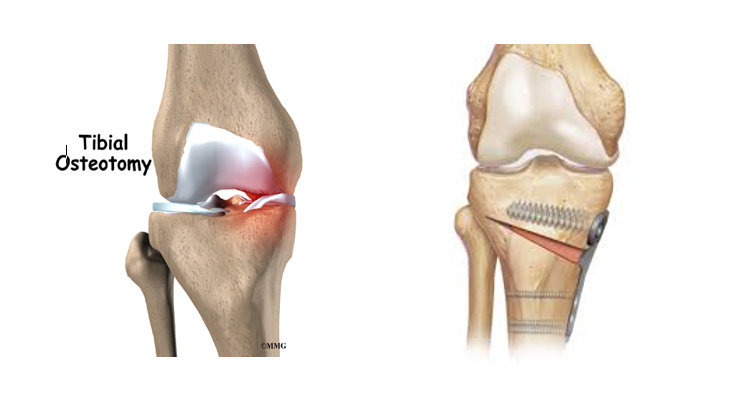
Image Source: https://drlingarajuortho.com/high-tibial-osteotomy/
This procedure involves removing and realigning the bone to relieve the pressure on the joint or bone.
Bone grafts:
The surgeon replaces the damaged bone with a healthy bone from another body part.
Core decompression:
The surgeon removes the inside part of the bone to ease the pressure and help new blood vessels to develop.
Total joint replacement:
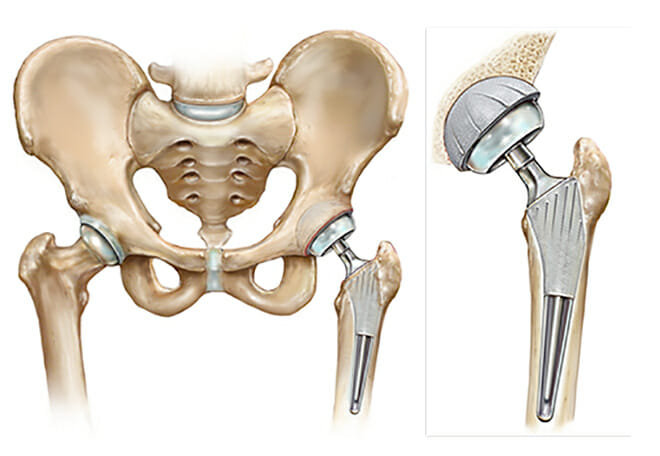
Image Source: https://www.summitortho.com/services-2/joint-preservation-replacement/arthritis-related-conditions-treatments/total-hip-replacement/
In this procedure, the surgeon will remove the damaged joint and replace it with an artificial joint.
Vascularized bone graft:
Your own tissue is used to rebuild your damaged or diseased hip joints. The surgeon replaces the damaged joint with a bone having rich blood vessels, such as the fibula, from your lower leg.
Electrical stimulation:
Your surgeon may use electrical stimulation during the surgery to promote bone growth.
Ways in which you can prevent avascular necrosis.
You can lower the risk for avascular necrosis by:
- Limiting alcohol consumption
- Stop smoking
- Not overusing steroids
- Keeping cholesterol levels under control
How can you care for avascular necrosis at home?
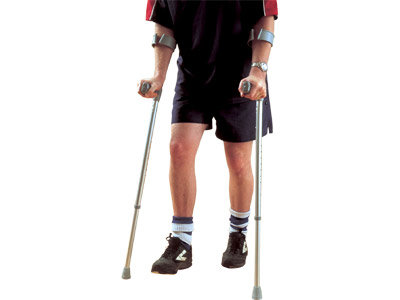
Image Source: https://www.thephysioclinicbristol.co.uk/the-low-down-on-using-crutches/
Rest:
Avoid putting pressure on your damaged joint by reducing your physical activities or using crutches for some months. It will slow down the damage.
Exercise:
You can take the help of a physical therapist to learn exercises that will help you get back the range of motion in your joint.
Are post-COVID patients more susceptible to avascular necrosis?
It has been observed that many post-Covid-19 patients are complaining of joint pain and are being diagnosed with avascular necrosis.
Heavy doses of steroids were given to COVID patients to save their lives. One of the side effects of steroids is bone weakness or bone death.
Excessive and prolonged use of steroids during COVID treatment has made patients more susceptible to avascular necrosis.
Another reason for AVN is intravascular blood clots in Covid-19 patients that disrupt the blood flow, causing bone death.
Hence, you should show a doctor soon if you have hip or thigh pain.
Conclusion
Avascular necrosis is a progressive condition that can cause bone collapse if not treated. If you need added information or want to know how to manage avascular necrosis, you should consult one of the best orthopedic doctor in Jaipur, Dr. Dilip Mehta. He practices at 3600 Knee Clinic. He specializes in arthroscopy, arthroplasty, and joint replacement.
